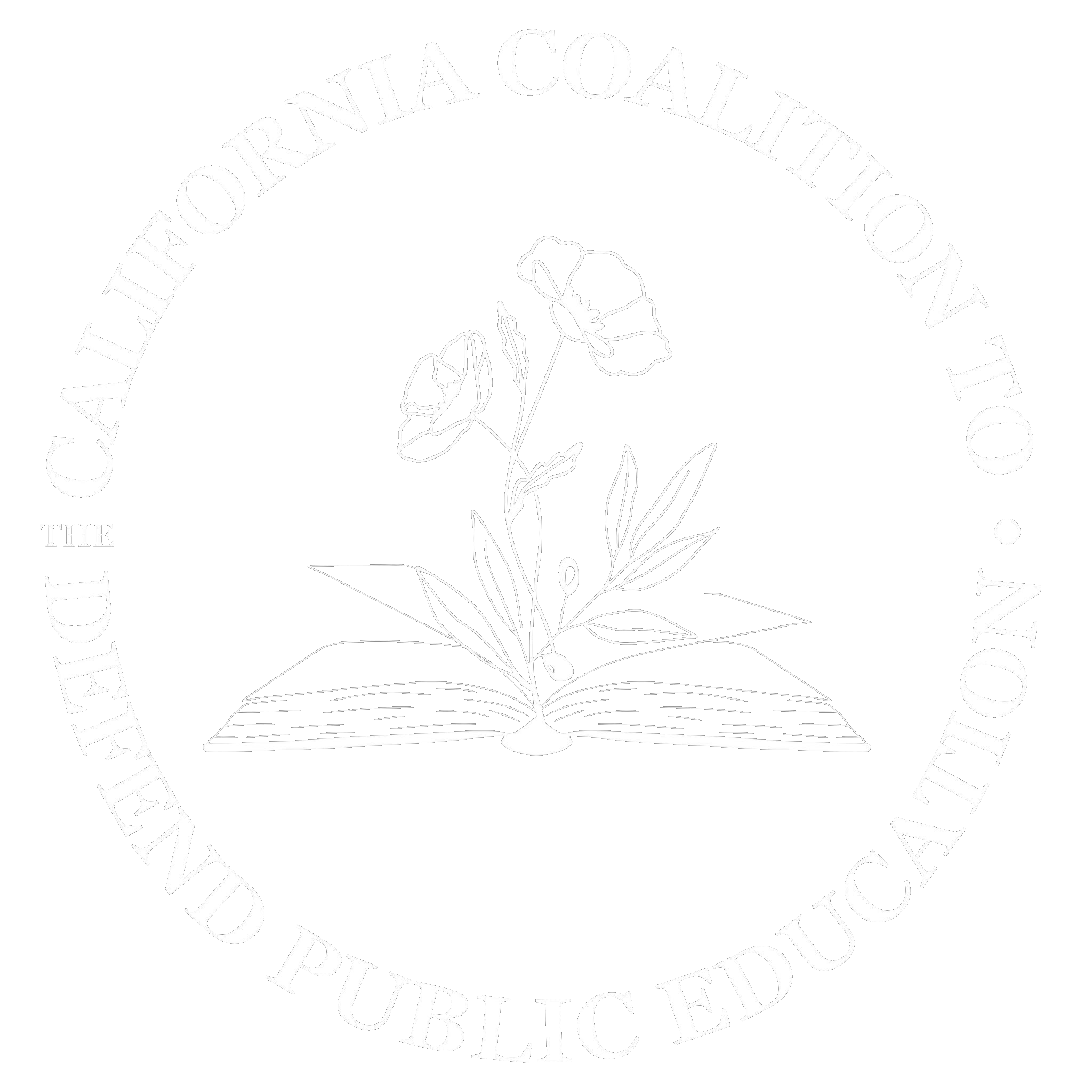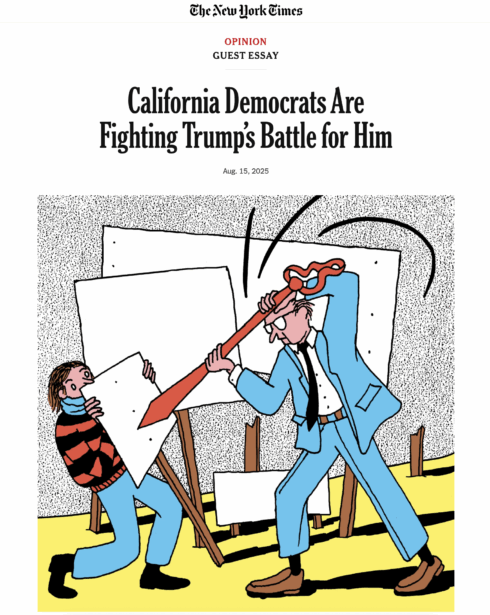
The California Coalition to Defend Public Education
The California Coalition to Defend Public Education (CCDPE) includes teachers' organizations, parents groups, civil rights groups, religious congregations, racial justice organizations, and supporters of ethnic studies focused on protecting free speech and critical thinking and analysis on all issues in our California public schools.

The Bill
AB 715: An Attempt to Bring Trump's Attacks on Education to California
AB 715 Seeks to Censor Educational Content and Threatens Teachers by Weaponizing Antisemitism Across CA's K-12 Public Education System
By Lily Greenberg Call, former special adviser in the Department of the Interior and first Jewish person who resigned from Biden's administration over his support for Israel's assault on Gaza.
What’s in the Bill?
Issues with AB 715:
"Labeling Israel a settler colonial state" is explicitly named in AB 715 as something that would be deemed antisemitic. This is an absurd conflation of categorizing legitimate criticism of a state's policies as a form of discrimination.
AB 715 would amend the definition of nationality in a confusing way, including even “a social organization where a collective identity has emerged.” Groups with ideological agendas (be it Zionist, Hindutva, Islamist, Christian nationalist, white supremacist, etc.) could use this to make a case to censor speech in the classroom. They could characterize educators’ discussion of foreign governments that practice severe discrimination against minority populations (such as Israel, India, Myanmar and many more) as discriminatory against people from those countries.
Similarly, it could lead Christians with white nationalist sympathies to claim discrimination if slavery or the genocide of Native Americans were discussed in the classroom, or pupils of German ancestry to object to materials about the Nazi Holocaust.
An example on Japanese internment shared by an educator during the Assembly Education Committee hearing on May 14, 2025: "In our eighth grade, our approved curriculum has a fantastic unit on Japanese American internment, a terribly shameful moment in our history, one of government failure, racist assumptions and mass incarceration. Should I be prevented from teaching about Manzanar because the actions of white Americans during World War II might be interpreted as subjecting a white pupil to unlawful discrimination based on their country of origin, the USA?”
The bill’s attempt to define antisemitism conflates it with criticism of Israel by adopting a reworded version of the IHRA definition of antisemitism, which is widely considered problematic and has been rejected by over 100 international bodies and civil society organizations, including even Israeli groups.
The latest amendments include a convoluted description of antisemitism that is sure to lead to confusion and lawsuits. For example, how does one evaluate the “lived experience of Jewish students”? This is totally subjective. It is only natural for different students to have different lived experiences and therefore different perspectives on what constitutes antisemitism.
Some possible examples:
This could lead to characterizing educators’ discussion of foreign governments that practice severe discrimination against minority populations (such as Israel, India, Myanmar and many more) as discriminatory against people from those countries and thus chill educational speech.
It could lead Christians with white nationalist sympathies to claim discrimination if slavery or the genocide of Native Americans is discussed in the classroom as related to the perpetrators’ religious beliefs, or pupils of German ancestry to object to materials about the Nazi Holocaust.
Creates an exclusive role that doesn’t exist for any other type of discrimination. It would create an antisemitism coordinator, a position that does not currently exist for any other ethnic or religious group.
Employs the mechanism for right-wing style book bans. It says local school authorities may not “adopt, approve or allow … textbook, instructional material, supplemental instructional material, or curriculum for classroom instruction” that a student may find discriminatory – a huge opening for bans on books and other content that someone finds controversial.
Targets teachers and school boards, specifically. The bill includes language to "strengthen the Uniform Complaint Process (UCP)” and expands it to include school board members which will result in a literal witch-hunt of teachers.
Redundant waste of resources. California already has strong anti-discrimination laws and policies. An analysis of the bill by the Assembly Education Committee consultant noted that almost everything in AB 715 is already covered in existing state law — effectively rendering the bill redundant and a waste of resources when California is already facing a massive $12 billion budget deficit.
Why Are Civil Rights Groups Concerned?
Fundamental civil rights, academic freedoms, and students' constitutional rights to receive an education that reflects the truth of our society's diversity and complexity are at stake. Advocacy groups warn that AB 715 could equate Palestinian solidarity and historical context with hate speech, raising concerns about censorship and academic freedom.
Instead of promoting our schools as bastions of knowledge, sharing, and safe spaces of curiosity and discussion, AB 715 would instill fear and censorship in our classrooms. For instance, because of the bill’s definition of “nationality”, books, articles or materials critical of any country past or present could be banned, and teachers could be punished for teaching about the subject.
The National and Global Context
This bill could have come from MAGA groups who share the intent to suppress discussion on race history and global justice in California’s schools. AB 715 emerges from a broader national trend in which well-funded lobbying groups seek to restrict classroom discussions of settler colonialism, systemic racism, and U.S. foreign policy-particularly as they relate to Palestine. Some of the organizations backing this bill have also opposed ethnic studies and diversity, equity, and inclusion (DEI) initiatives across the country
Recent articles on how the Trump administration, right-wing interests, and pro-Israeli groups are weaponizing antisemitism to attack education on a national level:
New York Times: California Democrats Are Fighting Trump's Battle For Him
"Assembly Bill 715 is framed as a measure to combat an “antisemitic learning environment.” In reality, it imports one of the most troubling censorship tactics from the Trump era into a deep-blue state. Democrats are the ones leading the charge."
Washington Post: Inside the powerful task force spearheading Trump’s assault on colleges, DEI
"The Trump administration is using antisemitism investigations as a pretext to pursue an unrelated conservative agenda, critics say."
Huffington Post: Jewish Faculty Call Out Weaponization Of Antisemitism Label In Higher Education
"Jewish staff say the federal government and their own institutions are using the term to exert more control over the education system and punish critics of Israel."
New York Times: University Leaders Reject Republican Attacks on Campus Antisemitism
"Critics of the Republican efforts say the hearings are not sincere efforts to protect Jewish students, but are instead designed to silence speech that supporters of Israel do not like."
New York Times: The Group Behind Project 2025 Has a Plan to Crush the Pro-Palestinian Movement
"Even before President Trump was re-elected, the Heritage Foundation, best known for Project 2025, set out to destroy pro-Palestinian activism in the United States."
Jewish Currents: Examining the ADL’s Antisemitism Audit
"A line-by-line reassessment of the organization’s data illuminates the flaws in its methodology."
Organizations Opposing AB 715
© 2025 California Coalition to Defend Public Education
